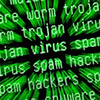
Chinese Cyber Attacks Cost American Universities Billions
- By Ginger Hill
- Jul 17, 2013
 Imagine logging in to update your computer’s security system only to discover that you receive approximately 100,000 attempted cyber attacks per day…mostly from China. This is exactly what happened to the University of Wisconsin’s Associate Dean, Bill Mellon.
Imagine logging in to update your computer’s security system only to discover that you receive approximately 100,000 attempted cyber attacks per day…mostly from China. This is exactly what happened to the University of Wisconsin’s Associate Dean, Bill Mellon.
“We get 90,000 to 100,000 attempts per day from China alone to penetrate our system. There are also a lot from Russia and recently a lot from Vietnam, but it’s primarily China,” Mellon told the New York Times.
Unfortunately, the University of Wisconsin incident is not in isolation as other American universities are being forced to spend millions of dollars to guard against cyber attacks. But, who is really paying the price?
I’d have to say the students because not only will this probably increase tuition rates, but it also interferes with the educational process, as most universities have open networks in which to share ideas, promoting a culture of openness.
Cyber attackers, with their horrific cyber attacks, prey on network vulnerabilities in an effort to steal sensitive information, with government and military systems being targeted for quite some time. However, attacks on universities, especially research universities are gaining traction as hackers are seeing the value in less-guarded targets of rich intellectual property that could prove valuable in the future.
According to James A. Lewis with the Center for Strategic and International Studies, “There are some countries, including China where the minute you connect to a network, everything will be copied, or something will be planted on your computer in hopes that you’ll take that computer back home and connect to your home network, and then they’re [cyber attackers] are in there.”
No wonder many universities require students and professors, who travel abroad, to have their computers scrubbed before returning to campus!
And, personally, I wonder if the Department of Homeland Security will begin asking internet service providers to begin blocking IP addresses of suspected hackers in academic settings?
I guess only time will tell.
Source: http://www.theverge.com/2013/7/17/4531380/colleges-universities-hackers-china-security
About the Author
Ginger Hill is Group Social Media Manager.